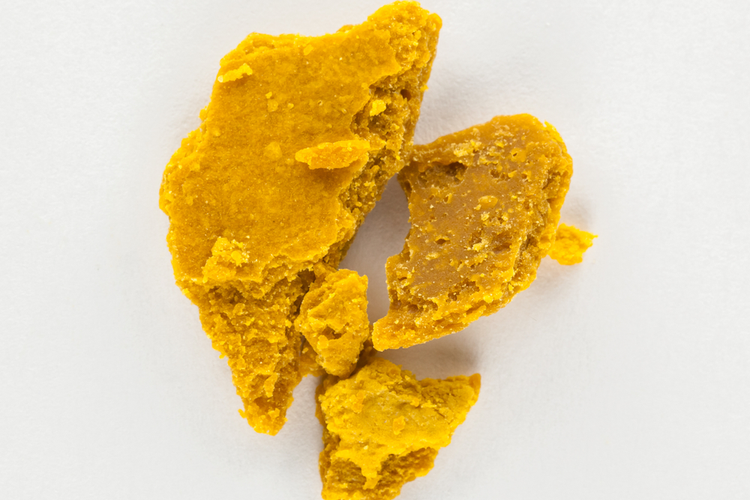In the ever-evolving world of cannabis concentrates, WPFF Hash Rosin stands out as a pinnacle of purity and potency. Short for Whole Plant Fresh Frozen Hash Rosin, this solventless extract captures the essence of the cannabis plant in its most vibrant form. Unlike traditional concentrates that rely on chemical solvents, WPFF Hash Rosin is produced through mechanical separation and pressing, ensuring a clean, flavorful experience. Enthusiasts rave about its rich terpene profiles and full-spectrum effects, making it a favorite among connoisseurs. As demand surges, with the solventless extract market growing by 175% in recent years, understanding WPFF Hash Rosin becomes essential for anyone diving into premium cannabis products. This guide delves into its intricacies, backed by industry insights and data.
The Origins: From Ancient Roots to Frozen Innovation
Hash rosin’s story begins with hashish, one of humanity’s oldest cannabis concentrates. Dating back to the 12th century in regions like Morocco and the Middle East, early hash was hand-rubbed or sieved from dried cannabis plants, creating a resinous product valued for its potency. The modern twist came in the 2010s when innovators like Phil “Soilgrown” Salazar popularized rosin pressing in 2015, using heat and pressure to extract oil from hash without solvents. WPFF emerged as a game-changer around the same time, pioneered by hash makers seeking to preserve volatile terpenes lost during drying. By freezing whole plants immediately after harvest—often within hours—producers lock in freshness, leading to “live” rosin with superior aroma and effects. This method draws from ice water extraction techniques refined in the 1990s, but WPFF elevates it by using undried material, resulting in yields up to 90% from high-quality hash. Today, WPFF Hash Rosin represents the fusion of ancient tradition and cutting-edge science, with its popularity exploding in legal markets.
Crafting Perfection: The WPFF Production Journey
Creating WPFF Hash Rosin is an artful process demanding precision. It starts at harvest: cannabis plants are cut, trimmed minimally, and flash-frozen at -40°C or below to halt degradation. This WPFF material is then washed in ice-cold water, agitated gently to detach trichomes—the resin glands packed with cannabinoids and terpenes. Using micron bags (typically 45-160 microns), the mixture is filtered, collecting bubble hash that can yield 3-6% by weight from the plant. The hash is freeze-dried or air-dried for 4-7 days to remove moisture without heat, preserving integrity. Finally, the dried hash is pressed between heated plates at 150-220°F under 1-10 tons of pressure for 1-5 minutes, squeezing out golden rosin. Yields vary: from bubble hash, expect 60-80% return, far higher than pressing flower directly at 15-25%. Industrial setups can process up to 500 pounds of WPFF daily, highlighting scalability. This solvent-free method ensures no residual chemicals, appealing to health-conscious users.
Why WPFF Hash Rosin Reigns Supreme: Unmatched Benefits
WPFF Hash Rosin excels in purity and potency, offering a full-spectrum experience that rivals solvent-based extracts. By freezing fresh plants, it retains up to 90% of terpenes, delivering vibrant flavors like citrus or pine that degrade in dried material. Potency often hits 70-90% THC, with balanced cannabinoids for an entourage effect that enhances therapeutic benefits, from pain relief to relaxation. Unlike distillates, it avoids waxes and lipids, reducing residue and providing cleaner hits. Environmentally, it’s sustainable—no harsh chemicals mean lower ecological impact. Users report smoother, more flavorful dabs, with studies showing fresh frozen processing captures unique terpenes lost otherwise. In markets like Oregon, WPFF-derived rosin commands premium prices, reflecting its superior quality and appeal to discerning consumers seeking natural, potent options.
Navigating the Market: Hash Rosin Online, Wholesale, and White Label Essentials
The hash rosin market is booming, with rosin comprising 14% of dabbable concentrate sales in 2023, up significantly from prior years. For buyers, Hash Rosin Online platforms offer convenience, with retailers shipping to legal states and prices ranging $45-140 per gram retail. Wholesale avenues provide bulk deals, often $20-40 per gram or $1,000-1,850 per ounce, ideal for dispensaries. Hash Rosin Wholesale suppliers in California and Colorado emphasize WPFF for quality assurance. Emerging is Hash Rosin White Label, where manufacturers produce premium rosin for rebranding, boosting margins by 15-40%. The overall cannabis concentrate market is projected to hit $73.6 billion by 2027, with solventless like WPFF leading growth. Brands like White Label Extracts have climbed rankings, underscoring white labeling’s role in market expansion. Whether online, wholesale, or white label, WPFF options ensure authenticity and value.
Savoring the Essence: Consumption Methods for WPFF Hash Rosin
Consuming WPFF Hash Rosin unlocks its full potential through various methods. Dabbing reigns supreme: heat a quartz nail to 400-600°F, apply a rice-grain-sized dab, and inhale for instant effects. Vaporizers like portable e-nails offer convenience, preserving terpenes at lower temps. For subtlety, infuse into edibles—decarboxylate at 220°F for 30 minutes, then mix into butter or oil for potent treats. Topping bowls or joints adds kick: layer rosin atop flower for enhanced flavor. Ball vapes excel for hybrid use, vaporizing rosin cleanly. Always start low—0.05-0.1g doses—to gauge potency, as WPFF’s strength can surprise.
The Legal Landscape: Navigating Regulations for WPFF Hash Rosin
Legality of WPFF Hash Rosin hinges on location. In states like California, adults 21+ can possess up to 8 grams of concentrates, with production legal under licenses. Federally, hemp-derived rosin with under 0.3% Delta-9 THC is legal via the 2018 Farm Bill, enabling interstate sales. However, states like Texas impose harsh penalties for THC-rich versions, with over 4 grams potentially yielding life sentences. Home pressing from legal flower is often permitted in medical/recreational states, but chemical extraction bans apply. Always verify local laws, as solventless status doesn’t exempt it from cannabis regulations.
Embracing the Future: WPFF Hash Rosin’s Enduring Appeal
WPFF Hash Rosin embodies cannabis innovation, blending tradition with technology for unmatched quality. As markets expand and preferences shift toward clean extracts, its role will grow, promising exciting developments in strains and techniques.
Elevate your dispensary with our solventless Whole Plant Fresh Frozen Hash Rosin, crafted for unmatched purity and potency. Capturing vibrant terpenes and 70-90% THC, our full-spectrum extracts deliver superior flavors and effects, free from chemicals. Backed by booming market growth—rosin sales up 14% in 2023—our wholesale options offer competitive pricing at $20-40 per gram, ensuring high margins.
Explore Hash Rosin Online, White Label, and Wholesale partnerships tailored for success. Join leading brands thriving with NanoHempTechLabs’ innovative, sustainable products.
Schedule a call today to unlock exclusive deals and customize your order!
Reference:
- Munger, K. (2025). Cannabis concentrate vaping chemistry. Frontiers in Toxicology, 7. https://doi.org/10.3389/ftox.2025.1568207
- Oswald, I., Paryani, T., Sosa, M., Ojeda, M., Altenbernd, M., Grandy, J., … & Martin, T. (2023). Minor, nonterpenoid volatile compounds drive the aroma differences of exotic cannabis. Acs Omega, 8(42), 39203-39216. https://doi.org/10.1021/acsomega.3c04496
- Paryani, T., Sosa, M., Page, M., Martin, T., Hearvy, M., Ojeda, M., … & Oswald, I. (2024). Nonterpenoid chemical diversity of cannabis phenotypes predicts differentiated aroma characteristics. Acs Omega, 9(26), 28806-28815. https://doi.org/10.1021/acsomega.4c03225





